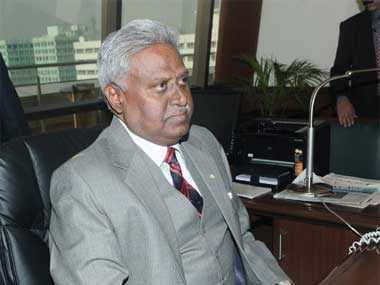Some may consider the Supreme Court’s observations yesterday during the Coalgate hearing too stinging and harsh. But those who have worked for government in the past, especially the Central Bureau of Investigation (CBI), would welcome them as a much-needed antidote to repair an organisation that had gone astray during the past decade or so. The serpentine route that the probe against Mayawati and Mulayam Singh Yadav had taken is proof enough that all is not well with the agency to which the courts as well as the common man look up for support during a crisis. It is true that no government has been a saint in the matter of misuse of the CBI. However, the deterioration during recent years has been too perceptible to ignore. The Coalgate investigation will be remembered forever as an example of how, when it is in dire need, a government can blatantly tinker with justice, just to protect those in high places. A PIL has exposed it all, and we must thank Prashant Bhushan for the kind of fight he has put in to ensure that an attempt to subvert justice did not succeed. We need more like him to keep investigative agencies on track, undeterred by those powerful elements in government to whom sleaze and its cover-up are second nature. The CBI has had to do a lot of explaining in the Coalgate case. Its original defence of what it did in the course of the court-monitored investigation yielded place ultimately to apology and contrition. Possibly it had no alternative but to own up its indiscretion. [caption id=“attachment_767875” align=“alignleft” width=“380”]  Could the CBI director have told the political executive he wouldn’t accede to their demand? Image courtesy: PIB[/caption] Nevertheless it deserves to be given another chance to mend its ways. This is because the Director and others who were on the Coalgate investigation were not personally dishonest but only indiscreet. It is not everyone in the bureaucracy who can stand up to pressure. The system is so full of loopholes that it promotes sycophancy and servility and penalises outspokenness and non-conformity. In this miasmic ambience episodes like permitting outsiders to dictate terms to the CBI are not uncommon. This is precisely what possibly happened at the meeting summoned by the Law Minister. The Director could not have refused to attend the meeting. But he could jolly well have told the minister and the Attorney-General in polite language that he was not in a position to share the details of the investigation, what to speak of allowing them to make changes to the CBI draft report. This is where the CBI seems to have erred. This is not an analysis in hindsight but is fundamental to police work. There is an age-old embargo on outsiders from influencing the course of investigation. This embargo was violated here, and the apex court was alerted by an enthusiastic Prashant Bhushan, and those who swear by justice should applaud him for his courage. What next? The Supreme Court wants to insulate the CBI from being hijacked by misdirected politicians. It has asked the government to think of legal alternatives whereby no one dares to browbeat the CBI. The reform indicated will have to protect not only court-monitored investigations, but every investigation, sensitive or not. One first step will have to get rid of the infamous ‘Single Directive’ whereby it is mandatory for the CBI to get government approval even for doing a preliminary enquiry. This requires the deletion of the relevant provision in the CVC Act of 2003. Also required are deletions to the Criminal Procedure Code and the Prevention of Corruption Act whereby it will no longer be required for the CBI to approach government for sanction for prosecuting a public servant at the end of an investigation and for preferring an appeal to a higher court when the lower court acquits an accused. These are fundamental to any process that aims at insulating the CBI from the executive. This requires enormous political will that is presently absent. One final word. If you need good leadership at the top that can stand up to pressure, one needs to fortify the position of the Director (CBI). It is good that he has been given a mandatory tenure of two years. But this is measly. He needs at least five years to prove his mettle and usher in changes he considers vital to preserve the CBI’s professional excellence and autonomy. Also, the Director should not be swayed by a post-retirement opportunities to work for government, something that would undermine his objectivity. Unfortunately this sacrosanct requirement has been violated in the recent past. Giving a reasonably long tenure and imposing a ban on future government jobs for a Director could greatly enhance his stature as also prevent him from falling prey to enticement. At present there does not seem to be any move in this direction. This is a real tragedy. Let us hope that the Supreme Court-driven reform would provide for this vital requirement in a possible CBI Act. The writer is a former CBI Director
The Supreme Court’s kick will help the CBI independence, but the most important change required is the abolition of the “Single directive” which forces the CBI to seek government sanction for even preliminary enquiries
Advertisement
End of Article
Written by RK Raghavan
RK Raghavan is a former director of Central Bureau of Investigation and a former joint director of the Intelligence Bureau, New Delhi see more


)

)
)
)
)
)
)
)
)



